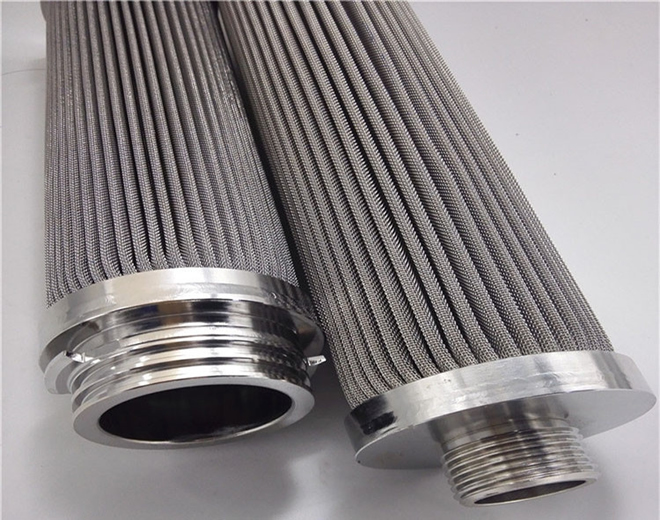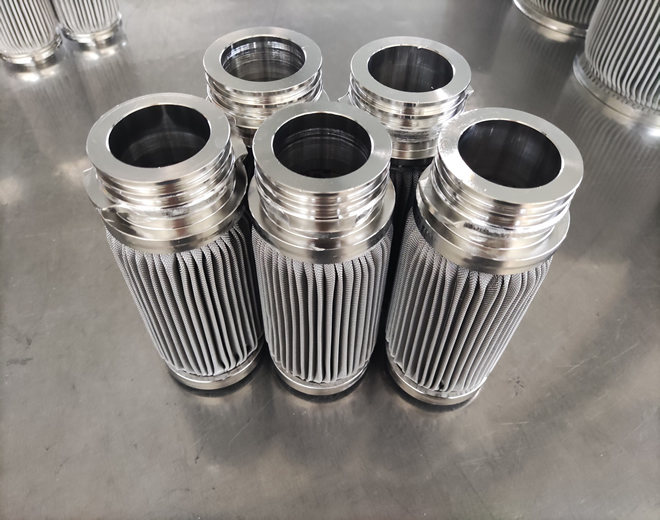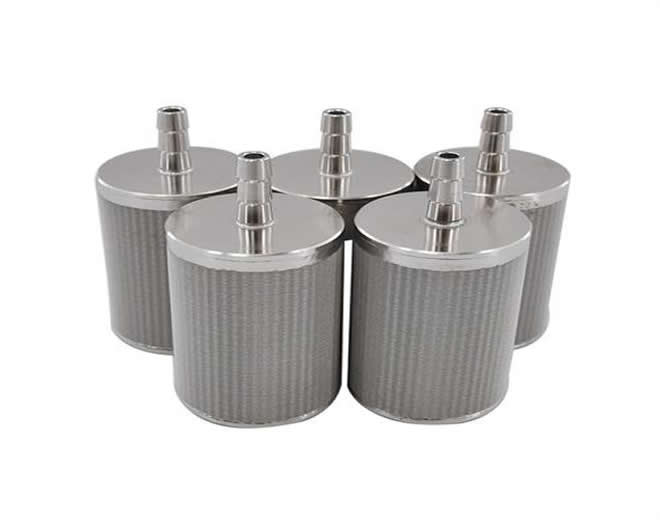In essence, metal pleated filter cartridges act as "precision guardians" in the food and beverage industry. Their core function is to perform efficient, reliable, and repeatable solid-liquid separation, ensuring product purity, safety, and consistent quality.
These cartridges are constructed from multiple layers of stainless steel wire mesh that are specially pleated, pressed, and welded into a cylindrical form. Their unique pleated design provides a very large effective filtration surface area within a compact housing.
Here is a detailed breakdown of their specific roles:
https://www.zhongbangfilter.com/133.html

Removal of Solid Particulates:
Raw Material Filtration: Used to filter water, syrups, fruit juice concentrates, alcohol bases, edible oils, and other raw materials. They remove impurities such as sand, metal shavings, fibers, or rubber particles that may be introduced during production or transportation.
Process Filtration: Installed in-line to capture particles generated from equipment wear (e.g., metal microparticles, gasket material fragments).
Final Product Polishing: Serve as a final precision filtration step before bottling or packaging to ensure the complete absence of visible or sub-visible suspended solids, enhancing product clarity and appearance.
Microbiological Control (as a Pre-treatment or Auxiliary Measure):
While not absolute sterilizing filters (unless they are absolute-rated or specially treated), they are highly effective at retaining yeast, mold, bacterial clumps, and other microbial carriers in liquids.
They are often used as a pre-treatment step before pasteurization or sterile filtration. By removing the majority of microorganisms and particulates, they significantly reduce the load on the downstream sterilization equipment, improving its efficiency and ensuring the final product's microbiological safety.
Ensures Product Safety and Quality:
Eliminates product quality issues and consumer complaints related to physical contaminants.
Extends product shelf life by controlling microbiological content.
Protects Critical Processing Equipment:
Placed upstream of sensitive equipment like pumps, homogenizers, heat exchangers, and filling machines, they act as "protective filters." This prevents particle-induced wear and clogging, reducing downtime and maintenance costs.
Improves Production Efficiency and Stability:
The high flow rate and low-pressure drop characteristics minimize resistance in the process line, ensuring smooth operation.
Their long service life and reusability reduce the frequency of changeovers and associated waste, boosting overall production efficiency.
Compliance with Hygiene Standards and Regulations:
Manufactured from 316/316L stainless steel, these cartridges meet food-grade sanitary requirements (e.g., FDA, EC1935/2004). They are corrosion-resistant, non-shedding, and non-leaching, preventing secondary contamination of the product.
Surfaces are often electro-polished, making them smooth and free of dead zones. This allows for thorough Cleaning-in-Place (CIP) and Sterilization-in-Place (SIP), meeting the industry's stringent hygiene demands.
Economic and Environmental Sustainability:
Reusable: Unlike disposable paper or plastic filter cartridges, metal pleated filters can be cleaned (via backwashing, ultrasonic cleaning, or chemical cleaning) and reused many times. This drastically lowers long-term operating costs and reduces solid waste generation, making them an environmentally friendlier option.
Water Treatment: Filtration of process water, rinse water, and final ingredient water.
Beverages: Clarification of juices, ready-to-drink teas, soft drinks, beer, wine, and spirits.
Dairy Products: Filtration of milk, yogurt, whey, and ice cream mix.
Edible Oils: Filtering impurities from crude oils.
Condiments: Filtration of soy sauce, vinegar, and syrups.
Sugar Industry: Clarification of sugar liquors.
Metal pleated filter cartridges are an indispensable component in the food and beverage industry due to their excellent mechanical properties, superior chemical compatibility, high porosity, dirt-holding capacity, and cleanable/reusable nature. They are a critical barrier for ensuring product sensory attributes and food safety, as well as a key component for achieving efficient, economical, and sustainable modern production.


